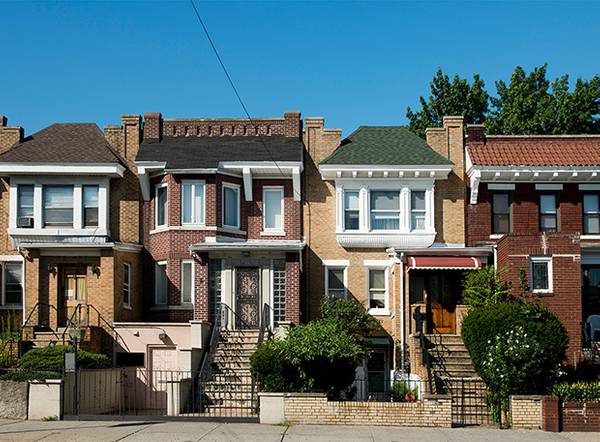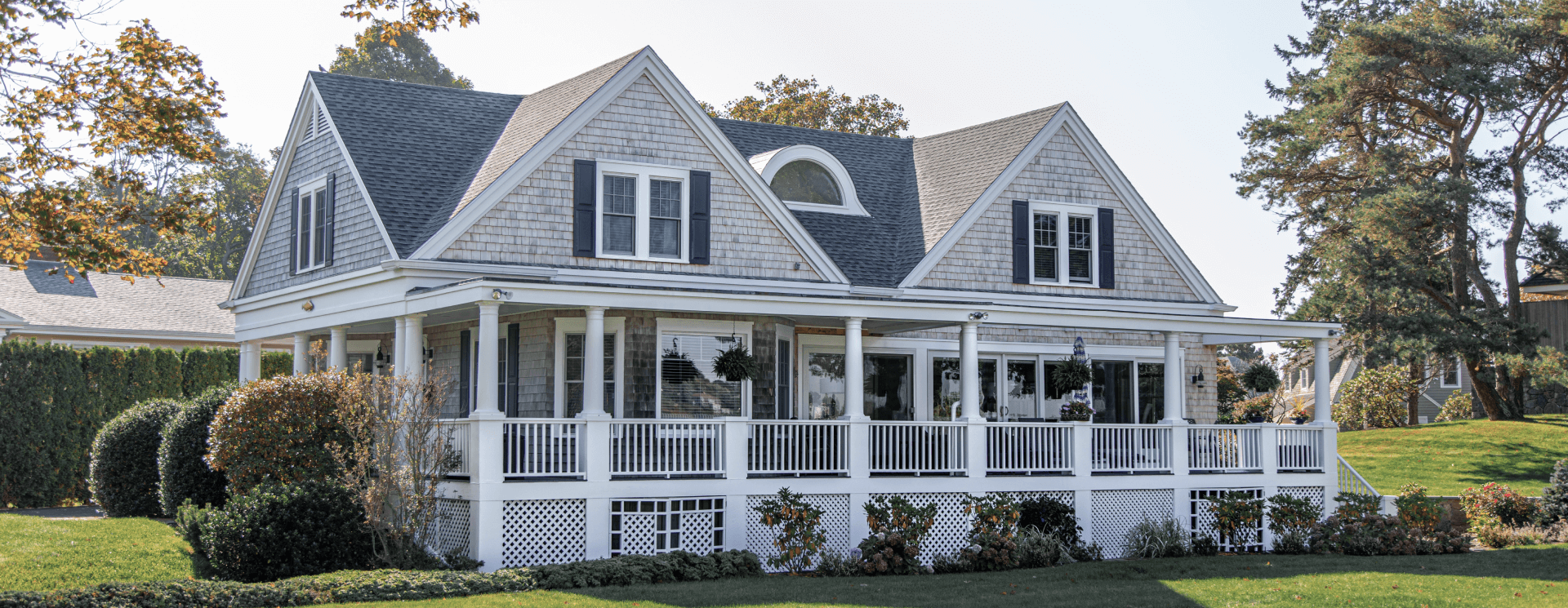
Searching for your dream home? Here are 6 things to consider when you start looking:
- The value of a good real estate agent
- What a realistic budget looks like
- Which home features are most important for their present and future needs
- The red flags that shouldn’t be ignored
- How to make the right offer
- The best first steps in the mortgage process
Finding a Real Estate Agent
At one time, the only ways to search for homes were checking the classified section of the local newspaper, contacting a real estate company, or driving around in search of “For Sale” signs. Today’s homebuyers have more options than ever. The internet is full of ways to browse, schedule viewings, and learn detailed specifications of available homes. However, there are still benefits to working with an agent.
Good agents make the buying process easier by finding available homes, arranging showings, making sure buyers have all the information they need, and helping them put together a competitive offer. As an added bonus, in most cases, the seller rather than the buyer pays the agent.
There are several steps to finding a knowledgeable and reliable agent:
- Ask for referrals: Most homebuyers know other people who have bought and sold their homes through real estate agents. Asking friends and relatives is a good way to find a reputable, personable agent with knowledge and experience.
- Research candidates: There is a lot of information online about real estate agents, both on their websites and social media accounts they use to promote their business. Prospective homebuyers can read online reviews and also check for complaints or disciplinary actions through the websites of state real estate regulators and the local Better Business Bureau.
- Interview agents: Prospective buyers should talk to several candidates and ask plenty of questions before settling on an agent.
- Avoid using the seller’s real estate agent: Many people choose the real estate agent selling the house they want to put an offer on. This is usually not a good idea. Because the agent is working for both parties, they aren’t able to be an effective advocate for the buyer.
Determining How Much House You Can Afford
This is a step that should be taken before the house hunt begins. It’s not unusual for buyers without a budget to fall in love with something they can’t afford. This is heartbreaking and unnecessary. Figuring out a budget ahead of time — with the help of a simple calculator — can keep home shoppers on track.
Also, when home buyers know their price range in advance, they can set up an effective plan to save up what they’ll need for the down payment, closing costs and other necessary expenses.
Decide What You Want in a House
A housing search will be more efficient and focused if buyers know beforehand what they need and what they might want, in the context of what they can afford. Figuring this out is the fun part, when buyers can be both imaginative and deliberate about the desired features of their dream home.
Primary Considerations
Price: This is an all-important consideration. A wish list of amenities, bells and whistles will only come to life if the budget can support it. Price is the factor around which all compromises and limitations are determined, so prospective homeowners should give themselves a reality check.
Size: It’s important for buyers to decide how much space they need, including the desired number of bedrooms and bathrooms as well as overall square footage. This is also the time for buyers to consider which type of home they prefer: a detached single-family property, duplex, townhome, or condo.
Location: When a family includes children, finding the best school district might be the priority. Choosing the right location can also involve considering factors such as noise levels, traffic patterns, crime statistics, nearby amenities, and even community spirit.
Secondary considerations
Renovation need and potential: Prices are generally higher for a home that is “turnkey” or “move-in ready.” A less expensive home in need of renovations has the potential to offer more for the money, but only if the improvements can be made within the buyer’s budget. Before purchasing a ”fixer-upper,” potential buyers should decide what resources (time, manpower and, most importantly, money) they can dedicate to updating a kitchen or restoring hardwood floors. When extensive renovations have already been done, it’s a good idea for buyers to research whether or not that work was permitted. Unpermitted work offers no guarantees of quality, and substandard work can mean expensive repairs in the future.
Amenities and special features: Perhaps buyers would like a spare room to convert into a home office but don’t necessarily need one. Maybe they’ve always dreamed of owning a pool, but can live without it. A two-car garage would be great, but space for one car will do. Once the primary considerations are met, these bonus features are what gives a house “dream home” potential. Most buyers’ budgets are too limited to cover everything they want, so they have to figure out what’s most important. For a family with three children, having only one bedroom or one bathroom is probably much more of a deal breaker than not having a hot tub and screened-in porch, for example.
Warning Signs and Common House Hunting Mistakes to Avoid
Home buying can be a very emotional journey. It’s important for shoppers to be aware of common external and internal red flags, such as:
- A beautiful neighborhood with a high crime rate…Falling in love while ignoring the statistics
- Abandoned properties nearby…Assuming the neighborhood will get better
- A lot of undeveloped land…Not considering what is likely to be built there
- Damage in the home…Underestimating the cost and work to fix it
- A hot housing market…Rushing an offer to avoid losing out
- An expensive dream home…Stretching the budget
Before making an offer, prospective buyers should try to visit a home more than once, during different times of the day. This is one way to know if, for example, the neighbors are loud at night, the traffic is very heavy during the day, or the neighborhood feels as safe at night as it does during the day. Neighbors and real estate agents can also be valuable sources of information.
How to Make an Offer
What is an Offer?
Once buyers find a house they want to purchase, it’s time to make an offer. Offers typically have at least three components: the price the buyer is offering to pay for the home, the desired closing date, and how long the offer is good for. There can be additional components, such as concessions, inclusions, or contingencies.
- Concessions are costs that the seller pays for the buyer, which reduce the amount of money the seller receives. Typical concessions include cash back for repairs or renovations.
- Inclusions refer to what stays in the house, such as appliances, blinds, chandeliers, etc. If a buyer wants any of the furnishings or decor included in the sale, that needs to be stated in the offer.
- Contingencies are conditions that must be met in order for the sale to go through. Home inspections, financing, and appraisals are common contingencies.
Pre-qualification
One of the first things the seller will want to know before the offer is accepted is if the buyer can realistically afford the cost. Pre-qualification is an informal estimate by a lender of how much a home buyer can borrow for a mortgage. A pre-qualification letter can be included with the offer to show home sellers that the buyer’s offer can be taken seriously.
Pricing the Offer
The real estate agent prepares the offer. To determine an appropriate offering price, agents generally look at comps – similar houses that have sold in the neighborhood. Other considerations include how long the house has been on the market and whether there are any competing offers. In a slow housing market, it is common to offer less than the asking price. Conversely, in a hot market, when it is not unusual for one house to garner multiple offers, it’s common to offer more than the asking price.
Offer Process and Costs
Once the offer is written, the agent presents it to the seller. Along with the offer, it is customary for buyers to give sellers earnest money, also called a good faith deposit, to show that they are serious about purchasing the house. In most places, the amount is between 1 and 3 percent of the offered purchase price. This money is part of the down payment and should go into an escrow account, not directly to the seller.
The seller will accept, counter, or reject the offer. When sellers counter, it is usually with a higher purchase price, but counters can also involve the closing date, concessions, inclusions, and contingencies. Buyers can accept a counter or respond with their own counter offer. When a seller accepts an offer, the house is under contract and taken off the market. This contract is binding unless a contingency is not met. Buyers who walk away for any other reason lose their earnest money.
Closing on the Offer
Once buyers are approved for their mortgage, final documents are prepared and sent to an escrow company that arranges a closing. In a closing, the buyer and seller sign all the documentation for the sale and mortgage, and loan proceeds are disbursed to the buyer. The lender also establishes an escrow account at closing for the portion of the home buyer’s future monthly payments that will be used to pay recurring costs like property taxes, homeowner’s insurance, etc.
Start Your Home Searching Process with a Bethpage Pre-Qualification
A pre-qualified amount isn’t a sure thing because it’s based on application information that hasn’t yet been verified by a lender. However, pre-qualification is still a very useful first step for home shoppers, with major benefits:
- Pre-qualification lets sellers know you are a serious buyer.
- Many sellers only consider offers from pre-qualified buyers.
- Pre-qualification sets reasonable price limits on homes to look at.
- When an offer is accepted, the mortgage application is already started, making the overall process quicker and smoother.
At Bethpage Federal Credit Union, we help our customers secure mortgages, improve their financial standing and navigate the process of buying a home. Visit our mortgage center today to check our competitive rates, chat with our experts, or begin the application process.
- Categories:


